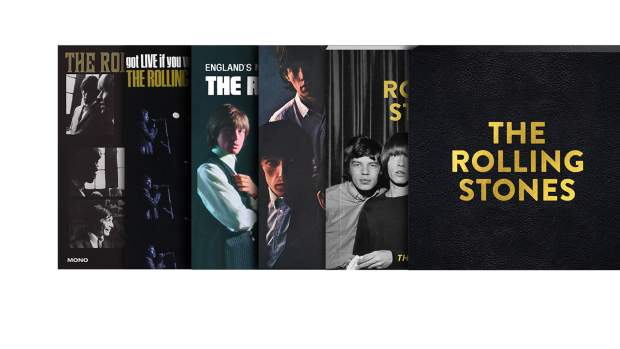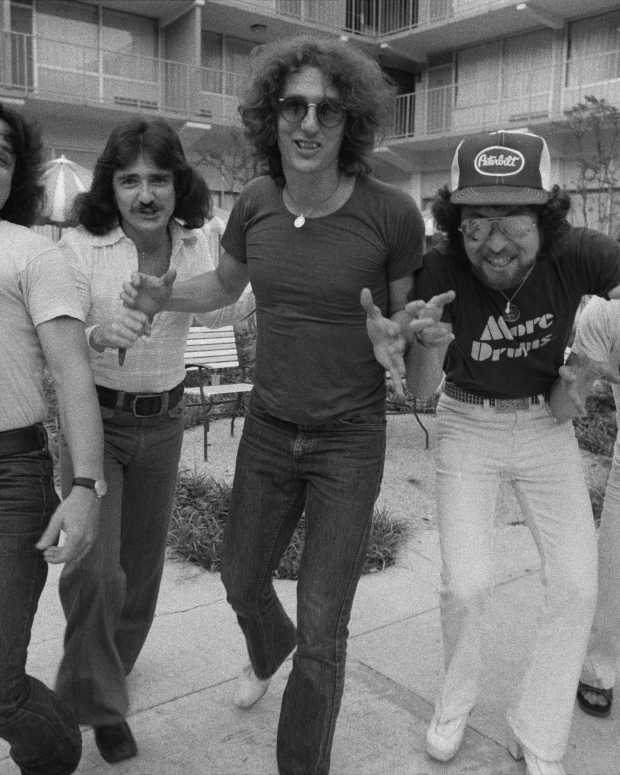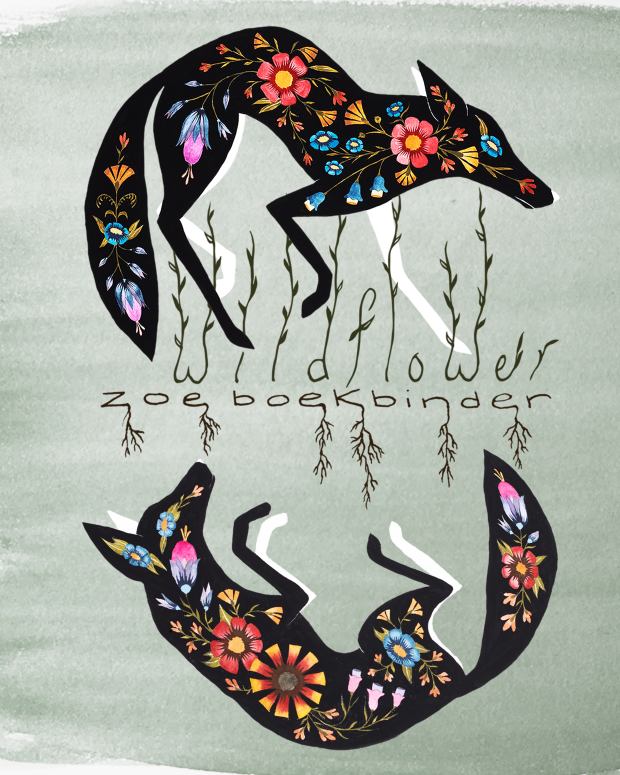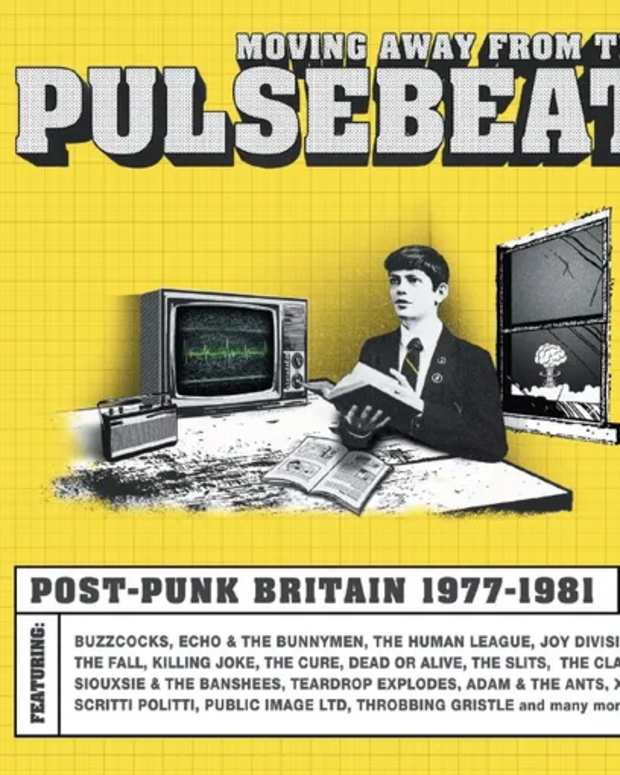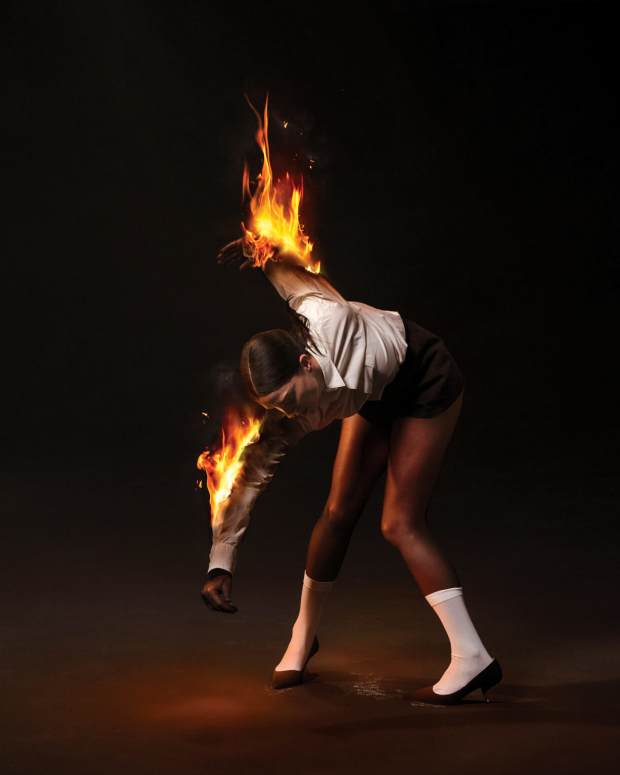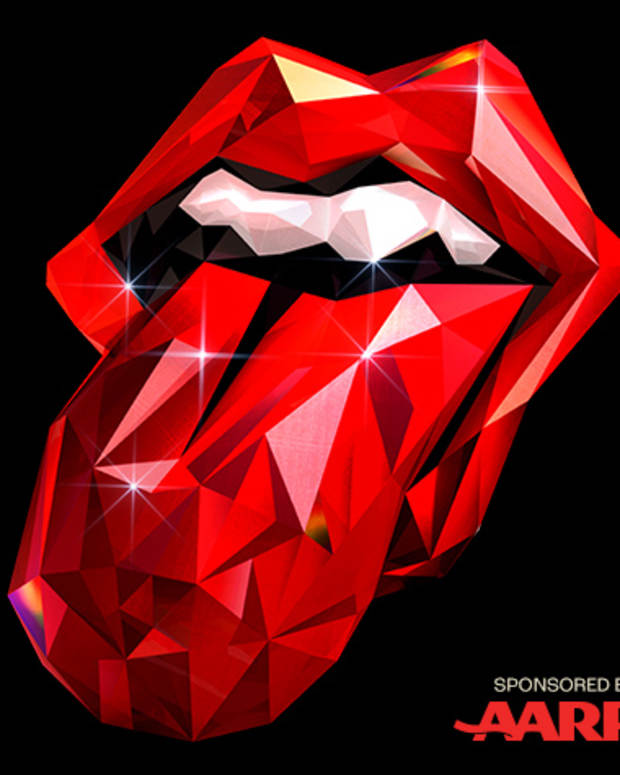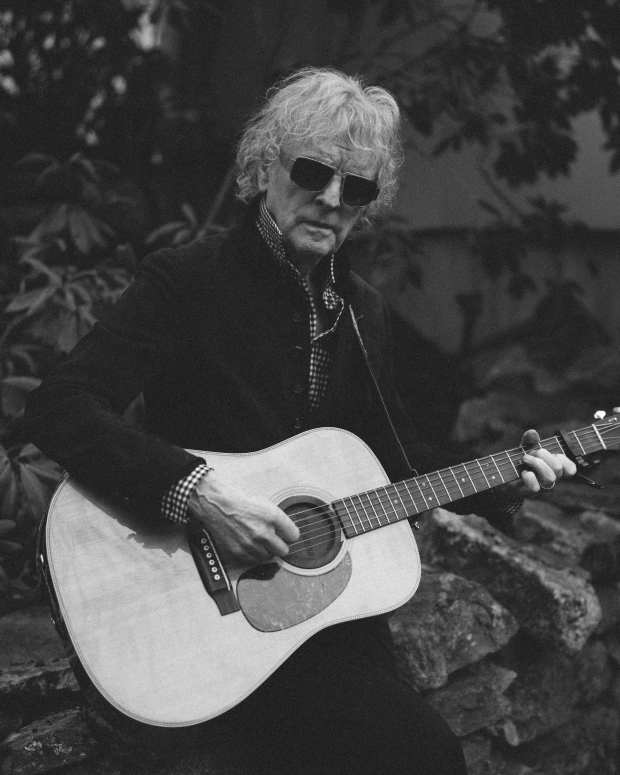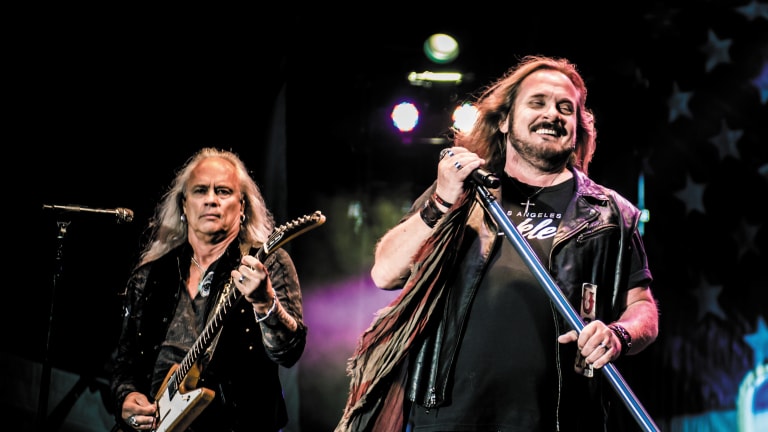
Rickey Medlocke and Johnny Van Zant continue to lead Lynyrd Skynyrd legacy
Few bands have ever been forced to overcome as much tragedy and adversity as Lynyrd Skynyrd. Taking their name from Leonard Skinner, a gym coach at the high school the original members attended — and a man known as a strict disciplinarian given his disdain for boys with long hair — the group helped define the entire genre known as Southern Rock. In the process, they set the standard for dozens of other similarly inclined outfits that would follow.
After a number of early personnel changes, the classic lineup — singer Ronnie Van Zant; guitarists Gary Rossington, Allen Collins and Ed King; bassist Leon Wilkeson; and keyboardist Billy Powell — went on to inscribe their name in the annals of rock history with early anthems such as “Sweet Home Alabama,” famously written in answer to Neil Young’s vitriolic “Southern Man.” And then there's “Free Bird,” seemingly one of the most requested concert songs of all time.
Skynyrd recorded five studio albums during that initial phase of their career: (Pronounced ‘Lĕh-’nérd ‘Skin-’nérd) (1973), Second Helping (1974), Nuthin’ Fancy (1975), Gimme Back My Bullets (1976) and Street Survivors (1977). The band’s career careened to a stop after their chartered plane crashed while on tour, killing Van Zant, new guitarist Steve Gaines, Gaines’ sister and backup singer Cassie Gaines, assistant road manager Dean Kilpatrick, pilot Walter McCreary and co-pilot John Gray, and causing serious injury to those who managed to survive. That date, October 20, 1977, is forever inscribed as one of the darkest days in modern music history.
After taking time to heal, and following an initial incarnation as the Rossington Collins Band, and later, simply the Rossington Band, Skynyrd reformed 10 years after the plane crash with Ronnie’s brother Johnny at the helm. Guitarists Rossington and Rickey Medlocke — who played with the band in their initial incarnation prior to forming his own band, Blackfoot — then took up the Skynyrd banner along with Powell and bassist Wilkeson.
While the core of that band continued to remain active until late last year, misfortune continued to dog their progress. On January 29, 1986, Collins was involved in a car accident that claimed the life of his girlfriend, Debra Jean Watts, and paralyzed him from the waist down, effectively ending his music career (he died on January 23, 1990). Wilkeson died under mysterious circumstances in 2001; Powell died in 2009 after a heart attack. Rossington’s passing this past March severed the last remaining link to the original lineup.
Nevertheless, Johnny Van Zant and Medlocke have managed to carry on successfully under the Skynyrd brand for the past 26 years, releasing a series of albums (among them Twenty and Last of a Dyin’ Breed). And while there hasn’t been a Skynyrd studio offering in over a decade, there have been at least a dozen live albums since the band’s reformation, the latest of which, Live at Knebworth ’76, was released in 2021.
In addition to Van Zant and Medlocke, the current lineup features ex-Damn Yankees drummer Michael Cartellone, guitarist Mark Matejka, ex P-Funk keyboard player Peter Keys and bassist Keith Christopher. The band recently toured to celebrate the 50th anniversary of the debut album and released a career-spanning box set, aptly titled Fyfty, on October 13.
Goldmine spoke with Van Zant and Medlocke, who shared the group’s recent agenda while also reflecting on Skynyrd’s legacy, their current state of affairs and plans for future engagement.
GOLDMINE: First off, it’s an honor to speak with you gentlemen. It’s fair to say the title of “legendary” suits you well. So catch us up with what’s going on, like the 50th anniversary of the first album.
RICKEY MEDLOCKE: Before Gary passed away, the plans had already been in process. We had also planned a TV special that we filmed at the Ryman [Auditorium in Nashville], and he had taken part in that as well. What we didn’t realize is that it would be his last appearance with us. So these plans were already underway. He would join us off and on when he could. Everything had also been planned for us to go out with ZZ Top. So what ensued is that when Gary passed away, that kind of put a crimp in everything. And we were just wondering at that point if we should just call it a day, but everybody kind of agreed that Gary would have not have wanted that. As a matter of fact, he never wanted to see the music just die. None of us wanted it to all of a sudden fade out into nothing. So, it was his wish to keep the music alive, to carry it on and do what we needed to do. At that point, everybody — management, the estates, meaning Ronnie and Allen’s widow — and everybody else got together and said, “Hey, let the band continue and take the music to everybody.” And so the decision was made that we would go ahead and go forth with the 50th anniversary tour.
GM: Are there any plans for new recording, comparative or otherwise?
JOHNNY VAN ZANT: We had all intentions of going in and making a record and doing it with Gary. But he got sick and so it just never happened. But there are songs out there that we could record in his honor. So who knows? We’ll see what happens in the future. I remember saying after I joined the band, “Man, I want to make a record now. I want to carry on.” But then you think about how bad people are gonna friggin’ critique us. I mean, is it worth us doing that when we’re gonna get our ass creamed just because you can’t live up to “Sweet Home Alabama”? You can’t live up to “Free Bird.” But I said I wanted to try, and we did and we went out and recorded and had some success. The album we did called Last Rebel was a really good record. I love that record. We just started having fun with it and we didn’t care if we created another “Sweet Home Alabama” or “Free Bird.” It was like, let’s just write songs. Let’s do what we love doing. I think our most successful record since the plane crash was probably God & Guns. That was a good record.
RM: 50th anniversary box set [titled Fyfty, released in October, at left]...25 of the older songs from the original band. I’ve got a couple of songs on that which first appeared on the Muscle Shoals collection. And then we picked 25 of the newer songs, things we recorded since I’ve been back with the band, 25 songs from that era up to now.
GM: That gives us something great to cherish.
RM: It’s going to be really kind of cool, and now here we are. Right now today. From what I understand, the Ryman show was made to promote the 50th anniversary tour. I mean, it’s quite an undertaking right now, but everybody’s really happy and really ready to do this and get on with it. With that being said, the question also comes in, how long do we really want to do this, and keep going out there and keep going? People call us the Southern version of The Rolling Stones.
GM: That is a fair comparison, it seems.
RM: I said this to a guy the other day — I understand that there’s people that say, “Hey, guys, when are you going to hang it up, give it up?” I’m sure that there are other classic bands that have people saying the same thing to them. Sure. But what it really comes down to is, we’re players and this is what we do. Like Merle Haggard once said in a interview one time, he told the girl “Honey, I know I don’t need to be doing this, but this is what I do.” And that’s basically the same thing for us. I’m gonna play until whenever time runs out for me, you know what I mean?
GM: That makes sense.
RM: Like, all of the classic bands, once we’re gone, that’s it. And then people that want to beat us up can go on to somebody else and beat somebody else up.
JVZ: You know what, we’re playing it by ear. We want to go out, we want to play. There are a lot of families that depend on this, you know? And we’ve had crew guys that have been with us for years. It’s a family, and it’s hard to walk away from family.
GM: You also have a mission, and that is to keep a legacy alive. And keeping that legacy alive is a very legitimate mission. Some people say, “Oh, but it’s not the original band.” But the fact is, Rickey, you were there in the very beginning. And Johnny has been there for what, 36 or 37 years. Yeah. So that’s an indelible imprint right there.
RM: Right. It’s funny, because when I first got back with the band, Gary said to me, “You’re about the closest thing to Allen I could possibly hope to get.” That’s because our styles are so similar. And by coincidence, we both played the same guitar. So that’s why I came back. My job was to go in, to dive into the songs and play what Allen played on the original recordings, whether it be in the studio or live or whatever. And that way, it keeps the integrity of the songs. And then in that beginning, we also had Huey Thomasson and Ed King or Steve Gaines leading up to today. When Johnny or myself, and even Gary back then spoke to the guys, we’d say, “Hey, listen to the record, listen to recordings, and copy them exactly.” And that’s what each guy did, even down to the tone of the guitar, everything, so that when we walk out there onstage and play, it’s keeping the spirit and the integrity of it all.
JVZ: It’s just an amazing thing. Music is a healer. It really is. It lifts you up when you’re down. You listen to music when you’re in love. It’s a great thing. I mean, I don’t think I’ve ever met anyone who really didn’t like some form of music.
GM: So, is there any room to kind of vary from those original arrangements, like if somebody says, “Oh, I think I’d like to play this riff this way,” is that allowed? Or are you determined to do it by the letter in order to please the fans?
RM: I’ll just take me as an example. When I first learned the songs and I had the task, of course, of learning “Free Bird,” I knew that I had to emulate what Allen was playing. I knew the licks that he was doing. And all I had to do was basically section everything off and put them in the section where they belonged. And there you had it. I remember the first rehearsal, the day came when we were going to do “Free Bird” in those formative rehearsals leading up to when we would do our first gig together since I’d rejoined the band. Leading up to that, I said, I’m ready. And we went into rehearsal that day, we played through “Free Bird.” I played through it one time, and everyone looked at me and went, “Wow, there it is. Great job.”
GM: That must have made you feel pretty good.
RM: Over time, you kind of like, go, “OK, I’ve got it down.” But you always also want to put a little bit of yourself into it. I think over time, we’ve done that. We’ve stretched out a little bit, which, as long as you stick right to the integrity of the song, you can put maybe a little bit of yourself into it. I think the fans like it and that they appreciate it. I’ve been playing “Free Bird” now going on 28 years. So I’ve been playing that song that long. And I give it reverence and pay honor to Allen and the band while I’m doing it. But I also put a little bit of myself into it as well, and it works out great. I think every guy in the band does that. This year, we’re going to revisit the songs, and we’ll stretch out a little bit and we’ll see what happens. We’ll probably do some different stuff. Gary really put it precisely when he said no one person is bigger than the brand name. The brand name is the biggest thing, and it really is true. It takes a team of guys to live up to the brand name. But at the same time, there’s no one bigger than that name. So why not go out and celebrate a great band with great songs?
GM: Again, you’re living up to a legacy, a history, and you have to do it justice.
RM: Gary had passed. And we had a show on the books that he was actually going to come out and do with us, which was in Plant City, Florida. Well, he passes away the week before we had to fulfill that obligation. I knew going into that gig that at least for Johnny and I, it was going to be a real tough gig. Well, as it happens, right before we went onstage, a plaque was delivered backstage and it was from Spotify. And it had a great big round disc in the middle of it, probably the size of a dinner plate with the Spotify logo in it. And down below it said “Sweet Home Alabama,” in honor of a million streams of that song. So that tells you right there how important that music is for people. So what we’re doing is we’re going out to play it. I don’t even like to call it a tribute. I like to call it a celebration, honoring the band that went before us and created all that great music.
JVZ: I was talking to a young kid the other day, and he kind of summed it up by asking, “Hey, are you guys gonna be playing all the GOAT songs?” And when I said yes, he goes, “Thank God, because my generation would never get to see or hear the music of Lynyrd Skynyrd.” That really hit home to me. There’s a whole new generation of folks like that out there that just keep discovering this music.
GM: So how would you sum up the significance of that first album?
JVZ: I don’t know. The only thing I know is that whenever I talk to the guys from the heavy metal bands that have done shows with us, from freaking Metallica to Iron Maiden and Deep Purple... yeah, all these bands that I have admired myself say they have all loved Lynyrd Skynyrd. And then you get with the country artists like [Tim McGraw and Luke Bryan], and they say Skynyrd has touched them or has influenced them in some way. I’m just like blown away by it. I’m a very spiritual person. I believe my brother’s spirit is here with us, as well as all of them. I just wonder what the hell he would think. I think Ronnie would be cocky enough to say, “I told you so.”
GM: Had he lived, what do you think Ronnie would be doing now?
JVZ: Maybe Ronnie would have went on and do country stuff. We grew up on country music. When I heard Street Survivors for the first time, I went, Wow, that’s very different than the last record. I think they were evolving into something very, very cool and different. Steve Gaines had just come into his own there, and Ronnie saw his talent. He even let him sing a song. And so it was just a very cool and unique record. The songs are so great. If you have a great song, it doesn’t have to sound beautiful. But I wish I could answer that question for you. But only God knows.
GM: Do you see any bands these days that are sort of carrying the classic Southern Rock banner that you guys originated?
JVZ: Well, you’ve got Blackberry Smoke and Black Stone Cherry and a group that I just heard of called Steel Woods. They’re pretty friggin’ heavy. My niece’s boyfriend’s opened for them.
GM: You’ve had several new members come into the band. Is it kind of intimidating for them to come into such a storied ensemble?
JVZ: I’m sure, but we’re all brothers. A lot of us have been here for a long time, and I’m sure it’s intimidating for someone new. They’re all nervous when they come in because it is Lynyrd Skynyrd and that’s an iconic band. And, hey, I can tell you they feel no different than I did back in ’87. I was scared sh*tless. I was like, Oh my God, what am I doing here? You know, big mistake. What am I doing? It took me probably a good five years to feel that the fans are coming back. So I must be doing an OK job. And I gotta tell you, I don’t know if this nervousness or anxiety or whatever will ever go away. Every night before the show, it’s like, “Don’t talk to me. Let me get my head in the game because I got to be Johnny, the guy singing with Lynyrd Skynyrd.”
•••
Order the Lynyrd Skynyrd Collector's Edition bundle of the Fall 2023 issue (click below), which comes with:
• an alternate cover (the Then & Now album cover art
• a numbered slipcase with the Then & Now artwork
• a numbered HIGH QUALITY archival 8”x 8" print of Lynyrd Skynyrd's Twenty album cover art, hand-singed by the artists, Ioannis
The LYNYRD SKYNYRD Collector's Edition issue bundle is limited to 200 copies. See below. Order now!





